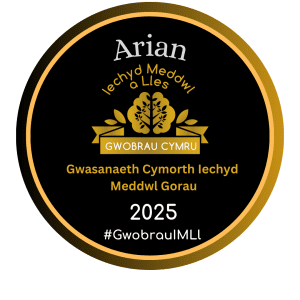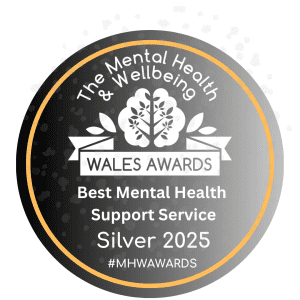Epilepsy Action’s Talk and support counselling service is not a crisis service and if someone is in immediate risk of harm or is in crisis contact should be made with their GP (or the out of hours GP service) who can refer them to the mental health crisis team.
The Samaritans also offer a 24 hour free telephone service 116 123 (UK and Ireland) or email jo@samaritans.org
Are you struggling to cope with an epilepsy diagnosis?
Do you need more support or help with your epilepsy and all that it entails?
Do you have a child or family member with epilepsy, and need help dealing with the emotional impact their diagnosis has on you?
These are feelings that many people with epilepsy and those closest to them experience. But you are not alone. Our epilepsy counselling services are here to help you navigate these feelings, try to make peace with your epilepsy diagnosis, and carry on with your life.
What is counselling?
Counselling is a talking therapy that can help you come to terms with change and overcome emotional difficulties.
Counselling may help you to work out ways of taking positive steps towards improving the way you feel.
You may also find you deal with situations in new ways that make them seem less stressful or difficult.
If you have questions about our service we’re happy to talk through this with you: 029 2130 4630.
What counselling services do we offer?
We at Epilepsy Action offer two distinct epilepsy counselling services: Our one-to-one counselling service and our Living Well with Epilepsy Programmes.
One-to-one counselling service
Our one-to-one counselling service is an eight-week programme, where you can have private sessions with a specialist counsellor either online or over the phone.
The service is completely free of charge, and it is designed to ensure that you can access tailored support for epilepsy when you need it.
The service is available to you if you meet the following criteria:
- You are over 18
- You live in Wales
- You are affected by epilepsy (either because you have epilepsy yourself, or you are the parent or carer of somebody with epilepsy)
Take control of your epilepsy
Living well with epilepsy is an online programme for adults in Wales living with epilepsy.
Our programmes are designed to support you to manage your condition better and improve your confidence.
Over 4 weeks, you will develop your skills and knowledge on:
• Managing your seizures and other symptoms
• Coping with anxiety and stress
• Improving sleep and memory
• Achieving a better quality of life
Meet our counsellors
What previous service users say
-
I was in a dark place
I was in a dark place when I started counselling. I had experienced side effects of a new drug for my focal unawareness epilepsy that I’ve never encountered before.
I knew I needed to open up to someone who understands epilepsy and share exactly what I was going through. I contacted the EA Counselling service.
“I did not have to wait long for my appointment and the Counsellor who was assigned to me was excellent.”
I could open up about my experiences and be vulnerable during the counselling sessions. What I was going through were suicidal thoughts, I was exhausted and sometimes slept all day, my speech was slow and I slurred my words.
When friends told me they noticed this, I was so depressed. On one occasion I tried to take my own life, I wanted all that I was going through to end. I shared this with my counsellor.
They were very concerned about my mental health and recommended that I speak to my Epilepsy Specialist Nurse/GP.
Sharing these experiences during the counselling sessions made me feel as if a weight was being lifted off me bit by bit. I would highly recommend the Counselling Service to anyone with epilepsy.
-
My sister has epilepsy
My younger sister has had epilepsy since she was 2 years old. This was back in the 1960s and people didn’t talk about it then.
She was prescribed medication and life seemed to go on as normal, although she often said that she felt woozy and regularly fell asleep straight after school.
I don’t remember her having many seizures as we were growing up.
She eventually left school, got a job and got married. But sadly, in her early 50s she was widowed.
Just before her husband died, she had a car accident caused by a seizure and she lost her driving licence. Until then I hadn’t thought much about the impact epilepsy had on her day to day life.
However, with her husband terminally ill I saw her more regularly and was always on hand to provide transport for shopping and medical appointments. Luckily, we only live round the corner from each other.
What I hadn’t bargained for was my obvious lack of understanding of what epilepsy is and how it would change our relationship. With neither our parents or her husband around I became her ‘next of kin’.
She then started to have more frequent seizures and would turn up at my front door with a black eye or a swollen lip.
I got very upset and worried about the fact that she lived on her own – neither of us has children or extended family to fall back on.“I began to have panic attacks if I was going away with my husband on a holiday. I just couldn’t bear to leave her on her own.”
Instead of being a loving sister and best friend I now felt like a carer and our relationship started to change.
We’d never talked about her epilepsy and I didn’t know how to start as she would get defensive and tell me she was fine and not to fuss.
I then decided that I needed to understand more about epilepsy. I’d been aware of Epilepsy Action and was used to working with charities and support groups in my job as a community development officer.
Early in 2023 I told my sister I was going to one of their roadshows and explained why. To my surprise she asked if she could come along.
We heard from various speakers about their experiences and were able to talk to other people who have epilepsy and their families.
I was surprised that my sister had never sought support before, mostly due to a negative experience with a member of the local nursing support team. From then on we were able to talk more honestly about her epilepsy.
However, I still felt extremely anxious about leaving her so I contacted Epilepsy Action about their counselling support.
Over 3 one-hour sessions I was able to express my fears and the counsellor suggested various coping strategies.
I was surprised how much of the past we managed to dig up! How I’d dealt with previous problems, what my strengths were (empathy and resilience being top of the list) and how much I loved my ‘little’ sister and how I had always wanted to protect her from harm.
We could have had a few more sessions but I felt that I had ‘enough tools in the box’ to start putting our relationship on a fresh footing. The counsellor did say that I could go back at any time, which was very comforting.
“Six months on I feel things have changed a lot. I still worry about her but I can now put things into perspective.”
I realise that I can’t be there all the time, that she will continue to have seizures when I’m not around, and that I have to trust her to manage her epilepsy. With the help of the counselling, I am calmer in dealing with her seizures and try to help to reduce her stress levels as much as I can.
We also have an emergency contact list of friends and neighbours who are on hand if ever needed. This, in particular, means that I no longer feel that I am her sole source of support.
This is something that we would not have been able to put in place if it hadn’t been for the intervention Epilepsy Action.
Talking to a counsellor got my sister and I talking after all these years of treading on egg shells. Thank you
-
I was sceptical at first
I started my counselling journey last year and today I have finished it. I was a bit skeptical at first, but it has done wonders for my mental health and handling stressful situations better which I thought wasn’t possible.
“[I] just needed a gentle nudge in the right direction my counsellor is absolutely brilliant.”
I had a good rapport with her from the first session which made it less daunting , my confidence has improved and my strategies to get through tough days.
If anybody thought about counselling definitely go for it. It’s like talking to a friend who wont judge you and who is on the outside looking in. I’m very grateful for the help I received.
Good luck everybody with your journey.
We are not currently taking new referrals for this service
We will update this page when new spaces are available.
Bitesize wellbeing videos
Check out our wellbeing videos for our top tips on sleep, stress and how to improve your wellbeing when living with epilepsy or supporting a loved one with epilepsy.
Top tips for managing stress when you live with epilepsy
How to support the mental health of a child/young person living with epilepsy









